Olivia Wirth: why it’s okay to live for your job
Qantas’s Loyalty chief Olivia Wirth talks about her boss Alan Joyce, partner Paul Howes and how she has dealt with the pandemic challenge.
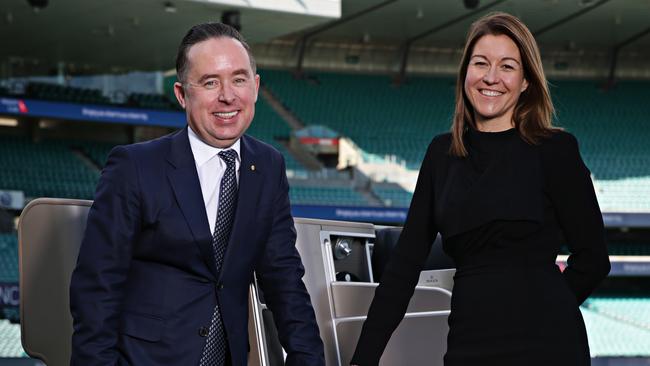
They are role models for women in corporate Australia, but these leaders are also keen to learn from their peers. The Deal paired eight high-profile executives, founders and directors and asked them to probe the secrets of success. They took it from there.
DIANE SMITH-GANDER (Director at Wesfarmers and AGL Energy): I am interested in how it has been working with (Qantas CEO) Alan Joyce, because senior women obviously have a history of working with senior men because the further you go up in an organisation, the more senior you become, the men are around the place and there really often isn’t anybody else to work for. It looks as if you’ve got a great relationship with Alan, and at the same time you’ve cut your own path. How have you managed to do that and what counsel would you give to other women who feel that they run the risk of becoming a bit of a handmaiden if they’re too closely aligned to a senior man?
OLIVIA WIRTH: I’ve worked for Alan for more than a decade so you’ve got to think that we work pretty well together. We work really well. But for me, the relationship with Alan has always been about honesty and transparency. That’s really important with the person you’re reporting to — to have really honest and open conservations. Alan had always been really encouraging about thinking more broadly than the role that I was brought in to do at Qantas, which started off in media and public affairs and government. We’d always had conversations about what opportunities there could be for me. But secondly, I think in any large organisation, it’s also about finding your own network inside the business. Whether that be through mentoring relationships, formalised networks, or other community work groups. For me that was really important because you work out the rhythms of the business, decision making, those sorts of things. So, really understanding how the business operates. Forming networks is just as important inside the business as outside, and owning those relationships.
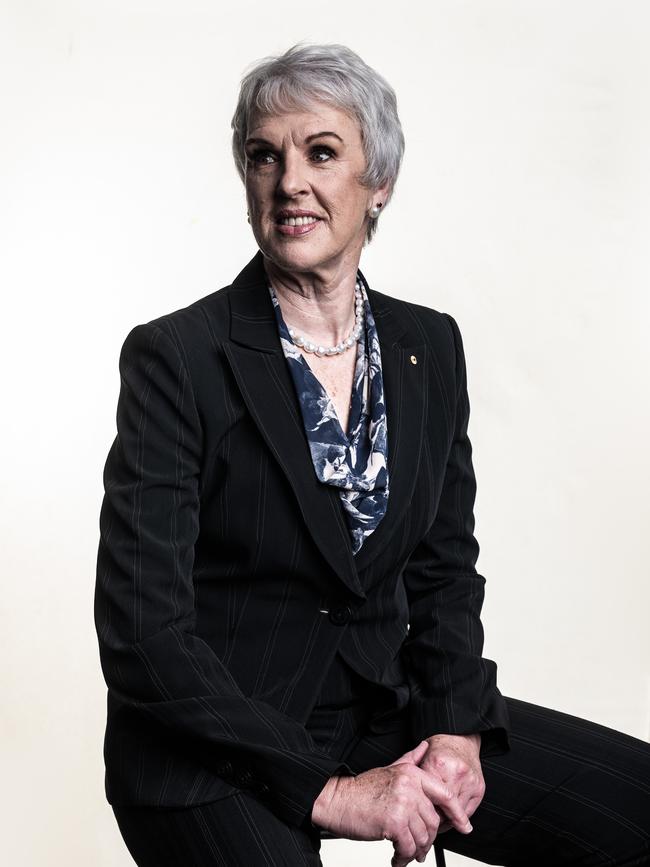
DSG: Did your new role (as chief executive of Qantas Loyalty) feel like it was a really big gamble?
OW: It did feel like a gamble I guess, in a way. I had been in the business for some time, around similar areas, around marketing, CMO, to customer officer, those sorts of roles. So, stepping out and running a P&L was a step change. One of the biggest things to get used to was a shift in dynamic. Because, when you’re in the hub, when you’re part of that small team that’s looking at every single issue across the business, you do feel really close to the heartbeat of the business and then stepping aside, running a P&L, running a business, really made me reset my relationship with the CEO, with Alan, and also your relationship with your peers. When you’re in an advisory role, it might be advising around a lobbying activity with government or how you’d market a product or managing an issue, it’s a different relationship that you have with your group executive colleagues. This is actually about running a P&L, running a business and that’s what you’re going to get judged on. So, for me it was about re-evaluating what success looked like and coming to terms with the types of conversations you’re going to have. In any transition you second guess yourself; is it the right decision, have I bitten off too much and have I made the right call? But I would say, this is, without a doubt, my absolutely favourite job that I’ve done for the Qantas group. So, I’m really happy that I jumped off and took the new challenge. And I don’t have to worry about the media deadline. I love that, being able to step back and have control of your time, and focus on the things that are important to drive value for the business and the customer, as opposed to the thing that’s immediate and urgent. That was very freeing for me, having time back and being able to manage myself in that way.
DSG: Did you have people in the organisation, women who were role models (with P&L responsibility) or did it come from the men?
OW: In our business, there’s always a culture of moving people around, including the group executives. Particularly over the past five to 10 years, we’ve really instilled in our culture (the idea) about moving to a Loyalty role, to a Qantas role, to a Jetstar role, to get that breadth of experience. Obviously ensuring that we’ve had an equal balance of opportunities for men, and also women, in the business, has become part of our diversity agenda. It’s something we talk about with our leadership team. So, there’s lots of examples across the business.
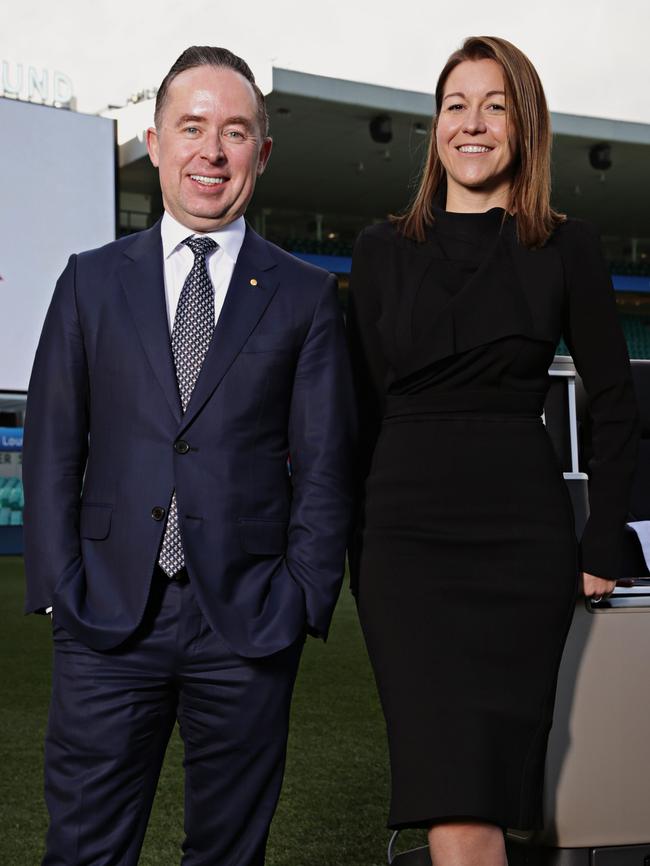
But I think you’re right … about having commercial accountability (experience). It’s something that Leigh Clifford, our former chairman, used to talk a lot about — get a P&L. It’ll be the most demanding job but it’ll be one that you really love. People talk about lateral hires, whereas I think you can actually make lateral moves to give yourself a greater exposure. I think that’s good for women because women often say: “I don’t have that degree, or I don’t have that experience.” Being able to say: “It’s okay for you to step into a commercial role without having a long list of degrees’ or whatever it is. Back yourself. Women (often) undersell themselves, so I think we should be encouraging other women to step outside the comfort zone and take a risk, essentially.
DSG: You’re absolutely spot on. The same thing happened to me at Westpac when I was in a chief of staff role. The chairman of the company and the outgoing chief executive and incoming chief executive said exactly the same thing to me: get one of those P&L roles. They shipped me up to Brisbane: I’d gone from having 60 people working for me to 4000 people working for me. You could hear the splash as I went in the deep end of the pool, but it really taught me not to be frightened of that change.
‘In any transition you second guess yourself; is it the right decision, have I bitten off too much and have I made the right call? But I would say, this is, without a doubt, my absolutely favourite job that I’ve done for the Qantas Group. So, I’m really happy that I jumped off and took the new challenge.’
— Olivia Wirth
OW: Was that unusual at the time?
DSG: Well they moved people all the time, but they typically didn’t move women. There weren’t very many women. It was when Bob Joss (was the CEO) and he wanted to do an assessment of the top 200 people in the bank and there were like 10 women, and it was only because he had insisted there had to be 10. Because when they’d grabbed up the top 200, there were like three women and he said, terribly sorry. I probably came in at number nine.
OW: We talk a lot about diversity and diversity of thought, but I’m a big one for diversity of age as well, making sure you’ve got people who have lived experience. Often you do have to rely on others and you have to be able to be brave enough to ask for help and ask the stupid questions. That for me has been a big lesson. It’s okay to ask the stupid questions. It’s better to ask them.
DSG: You need to have that diversity of thought. I have seen it over and over again in my career. I’ve seen the difference when you put a woman as a product manager in a place where there’s always been men, and they see it from a completely different angle. And then you see the guys going, “that’s an interesting question. Why did I never think of that question?” And the respect builds. Recently I saw it at the Wesfarmers board when (SEEK co-founder) Paul Bassat turned up and his experience was so different. I’m absolutely convinced that we wouldn’t have moved so fast to online if we hadn’t had Paul, we wouldn’t have made the Catch (Group) acquisition in the way that we have and we wouldn’t have been ready for COVID, because we wouldn’t have had online. Tell us about what it’s been like for you in COVID?
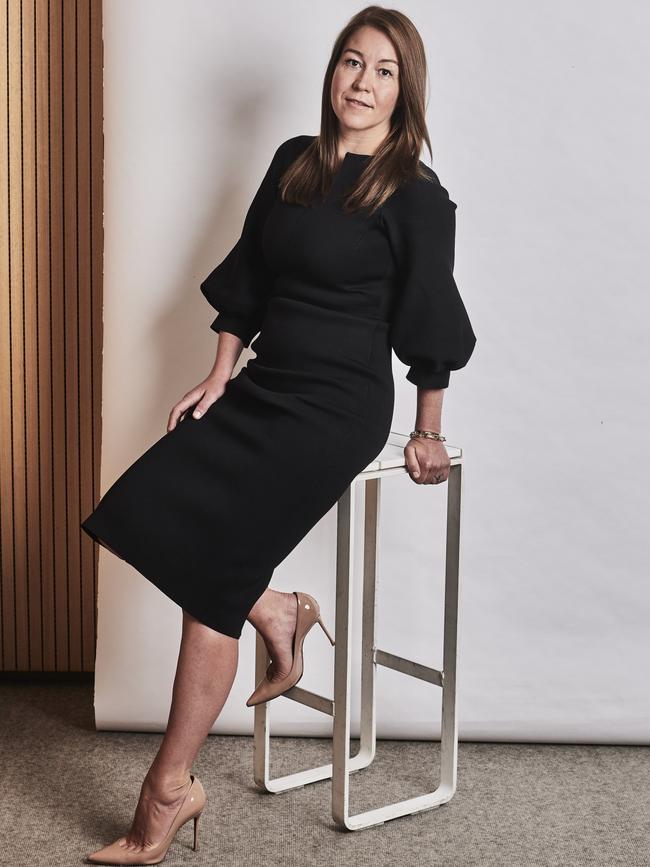
OW: It’s been a really challenging six months. There have been lots of challenges at Qantas, but this one’s really different for a number of reasons. One about the length of time, keeping the teams resilient during this extended period of time. I don’t think anyone would’ve expected the change to occur across the community or the business as quickly as it did, so speed was important. And then you’re switching gears to say “actually, this is not over in a day, a week, a month”. Then the second piece, which sounds very obvious, but the human aspect of this particular crisis has meant you have had to behave and operate as a leader in a really different way. At the heart of it, it’s a humanitarian crisis. Yes, there’s an impact on our business, but the impact on human beings, including our employees, has been so massive and therefore showing empathy and vulnerability has been really important. I think our teams have responded in a really different way and I think their expectations of leadership will be that that’s a new norm. It’s not over yet, we’ve just got to keep going, keep engaged and the other thing, from an employment perspective, is having a sense of high purpose. Purpose during these times became really important. You know, why am I getting out of bed? Making sure that the purpose is there?
‘I’ve seen the difference when you put a woman as a product manager in a place where there’s always been men, and they see it from a completely different angle. And then you see the guys going, “that’s an interesting question. Why did I never think of that question?” And the respect builds’
— Diane Smith-Gander
DSG: I’m a single woman — no kids, no grandkids, none of that — so I’m really not very well placed to talk to people about the balance in career and life. What advice have you got for young women who are thinking, how do I do this balancing thing?
OW: I think this life balance thing is a bit of an anomaly and different for everyone and I think sometimes people give themselves such a hard time in trying to reach this mythical thing (they think) exists, because it just doesn’t. There is no balance. I’ve definitely changed and become more balanced over the years. I definitely am a reformed sort of workaholic in a sense. I’ve been able, as I get older, to put things in perspective and get better at managing my time. But for me it’s always about just making sure you have things that you love outside of work and that you don’t forget about them. It’s simple pleasures; making sure that you don’t forget that you are a whole person and that work isn’t 100 per cent and what makes up that 100 per cent is a really important factor. (My partner) Paul (Howes, a partner at KPMG) has a really busy job, as do I, but we take it from a partnership perspective and there’s always been give and take. The good thing is that we both understand when things are high pressure you can be there for each other and a genuine support. We’re also there for each other to sort of slap each other around the head and say: “That’s enough for today. Let’s just switch off and not talk about it, let’s plan for a holiday or something.” I think people do beat themselves up about this idealism, this thing of balance. It’s different for everyone. Some people do live for their job and that’s okay as well. It’s just making sure you know what makes you happy and what balance you want to get.
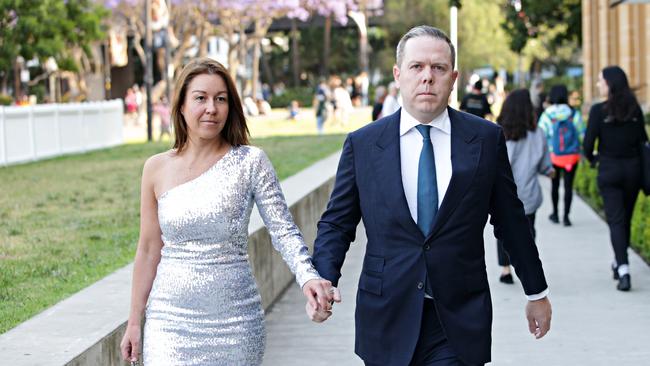
DSG: The big thing that I obviously don’t do anymore is travel … and there’ve been some really positive things about it. But I’ve got to say, I’ve really learnt the power of things such as the (Qantas) Chairman’s Lounge. While it’s not a place to do business, it is definitely a networking place. People who I used to see a lot, I don’t. I’ve had to think how can I get in touch and keep in contact with those people? So, that piece of my life is just so different now and I’m not enjoying it, I’ve got to say. I miss the hallway interaction and when someone bumps into you (and you can say): “I saw you in the press the other day and such and such, or I hear your board’s been doing so forth, could you give me five minutes on it?” And there’s always such gold in those interactions and you just don’t have them (now).
OW: We’ve done lots of different research pieces about our travellers for leisure and for business, and people are saying: “I want to get back to business” because it’s part of the way that they make new deals.They form new relationships. It gives you satisfaction with your job, having those interactions with people. I think we will get back to a balance and people will start travelling again because they yearn for that human connectivity.

To join the conversation, please log in. Don't have an account? Register
Join the conversation, you are commenting as Logout